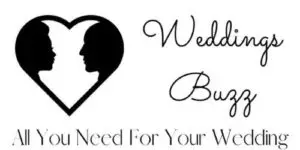Table of Contents
As it is with any job in a service-related industry, the practice of tipping is common with wedding vendors. Tips and gratuities are generally built-in to service estimates or itemized in the vendor’s contract, but if in doubt, it’s best to ask early in the relationship whether gratuity is included.
*This post may contain affiliate links. As an Amazon Associate we earn from qualifying purchases.
When paying for a dress fitting, alterations, a tailor or a seamstress it is not customary to tip. Specifically, seamstresses usually own their own businesses. You should never feel pressured to tip a business owner unless you want to.
Of course, if you’re thrilled with your final fitting and are feeling generous, a $15 to $30 tip (or up to 20% of the fee) is an appropriate amount to give your seamstress when you pick up your dress. Another idea is a thank you card that includes a gift card and a photo of you on your big day.
Many seamstress shops display photos from brides whose dresses they have altered.To see some of the current most popular dress styles just click here.
Should You Tip A Tailor?
Many people believe that the minimum wage for individuals in the service industry (waiter, waitress, bartender) is too low and should be considered illegal. However, what most people don’t know is that if the hourly wage a server earns does not equal the federal minimum hourly wage for their state, then their employer must make up the difference on their paycheck.
For example, if the federal minimum hourly wage in your state is $12 and the server only gets paid $2 an hour from their employer, they must make $10 per hour in tips to meet the federal minimum hourly wage. Therefore, employers must track their server’s tips. That way, if the server receives less than $10 in tips per hour, for each hour they work, their employer will make up for the server’s lost wages at the end of the pay period.
Many people don’t agree with the concept of tipping because most industries pay their employees an hourly wage (or salary) to do their job and most workers are NOT tipped. It’s pretty simple, you do the work, you get paid by the company who profits from that work.
When it comes to a tailor the only reason you should need to leave a tip is if you have an emergency or they go above and beyond your expectations. Beyond that it isn’t really expected that you tip a tailor.
How Much Should You Tip Your Hairdresser?
While you are considering how much to tip your hairdresser it’s good to know that hair stylists get paid differently depending on where they work. Some salons pay their stylists a commission, some pay an hourly wage and there are even independent stylists who pay the salon a weekly or monthly chair rental fee.
Hair salon commissions vary based on the salon, the stylist’s seniority and the stylist’s performance standards. For example, one salon may offer its stylists all a commission rate of 50% for services, while another salon may pay junior stylists a lower commission rate than senior stylists.
Other salons pay an hourly wage to their hair stylists. The average hourly wage for a hairdresser/hair stylist in the United States is $13 an hour as of 2022, with a range of $11 to $16 an hour.
These three wage types do not include tips.
That being said, keep in mind that tips for a hair stylist are totally at your own discretion. While tips are encouraged, they aren’t mandatory. But the general rule of thumb when it comes to tipping your hairdresser is 20% if you’re pleased with ALL aspects of your service including the personality of your hairdresser—whether you got a major haircut, a basic trim, or a blowout.
As with restaurants, your tip should be determined based on the cost of the service BEFORE tax. So, if your haircut is $60, your tip should be about $12. If your hair color service is $100, a $20 tip is standard. Don’t forget, if you had a salon assistant (rather than your actual hair stylist) shampoo and condition your hair and/or apply your gloss or glaze, ask the receptionist how tips are divided to make sure the assistant gets a tip as well.
If they’re not, it’s common to tip them $5 to $10, depending on your service.
If you’d like a bit of help calculating tips there’s a handy tip calculator online here:
Here’s a quick visualization of what your tip would be for a $55 service:
| Tip % | Tip Amount |
| 5% | $2.75 |
| 10% | $5.50 |
| 15% | $8.25 |
| 20% | $11.00 |
Should You Tip A Wedding DJ?
When you’re deciding on entertainment for your wedding reception there are a few things to consider. Ask yourself some basic questions— what type of entertainment suits your personal taste, budget, space allowances, and guest demographics best?
Here are four things to consider before you make your music choice:
Vibe: The type of music you pick can set the tone of your wedding. And it’s the thing people most often remember. Think about what musical genre best reflects your personalities (the bride AND groom) and inspires the ambience you want to create at your reception.
Variety: Whether you choose a band or DJ, be sure they play slow and fast songs, as well as old and new tunes to encourage all your guests to hit the dance floor.
Space: Verify whether the reception site has any restrictions on the number of musicians and pieces of equipment allowed, and whether there are any electrical power supply or noise limitations for the space you’re renting. For example, a registered landmark may not allow you to use large speakers. Ask these questions before you start scouting your entertainment in order to avoid any disappointments.
Budget: Normally, DJs generally cost less than a live band. Prices will vary depending on equipment requests and whether it’s a weekday or weekend. An 8-piece band, for example, will generally be more expensive than a DJ, since there are more people to pay. (There are always exceptions, well-known DJs can be just as expensive as live bands.) Band prices will vary by the number of musicians, the amount of time you want them to play, the day of the week and the time of the year.
Ideally, you’ll want to see a DJ or band perform BEFORE you hire them. That way you can gauge firsthand the way they dress, improvise and work the crowd. You should ask to see a taped public performance or attend a dress rehearsal, but never crash another couple’s reception.
If that’s not possible, at least ask for a playlist and look for songs you know and love.
If a band sends you their songs or a link to a video, be sure the musicians you hear or see are the ones who will be playing at your reception. It’s also a good idea to ask for referrals from the last few weddings the band or DJ played at.
Don’t forget to let them know your first dance song. If the band doesn’t know it and is unwilling to learn it, or the DJ doesn’t own it and is unwilling to get it, that’s your cue to find a different entertainer.
Also, there’s the question of tipping your entertainment.
Tips are common with wedding DJs and live bands. If your DJ kept the wedding on schedule and played a great selection of music, 15 to 20% of their fee is a suitable tip. Musicians should be tipped about $20 to $25 each.
Many bands offer a vocalist for the ceremony at an additional cost. Tip them the same amount as the other musicians. It’s best to hand out the tips in cash at the end of the night.
Should You Tip Your Wedding Officiant?
If you belong to a church, your own minister or priest may perform your wedding at no charge. In this case you might consider sending something personal, such as a gift certificate to a nice restaurant along with a wedding photo.
While it isn’t necessary to tip priests, ministers, rabbis, or other religious officiants, you might consider making a donation of $75 to $100 to their church. If your wedding is performed by a civil employee such as a judge, clerk, or other nonreligious officials, then you can typically forgo a gratuity.
Such officiants are paid a flat rate and are usually not permitted to accept tips or donations—local law may actually prohibit it. A thoughtful card, however, would be a nice gesture.
Should You Tip All Of Your Wedding Vendors?
Planning for a wedding can be very stressful. Especially if you’re on a tight budget. Knowing who to tip on your wedding day in regard to Photographers, Videographers, Florists, and Wedding Coordinators will keep the big day free of unwanted surprises.
For vendors who own their own businesses, as many of these professions do, tipping isn’t necessary. They’ve already negotiated their fees and do not expect a tip.

